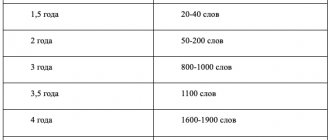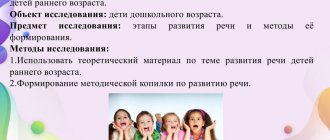How to increase your vocabulary
Problems with putting thoughts into words are familiar to many. Difficulties are not always associated with insufficient vocabulary, although the importance of a rich personal vocabulary should not be downplayed. Why do people who have no difficulty writing texts become surprisingly tongue-tied during live communication?
Perhaps the habit of simplifying and replacing words with gestures, interjections and repetition of the simplest phrases arises from a lack of communication. The inability to express one’s feelings and thoughts coherently and clearly interferes with understanding and creates a less than pleasant impression of the speaker. An obvious way to develop speech is by reading good fiction. Sooner or later, quantity will turn into quality, and speech will become expressive. We offer you several manuals containing techniques that will speed up the process of mastering the skills of bright and competent oral speech.
Radislav Gandapas “Kama Sutra for the speaker”
The title of the book is not only a marketing ploy and a provocation. Giving the title to his work, the author proceeded from the fact that everything done with pleasure is crowned with success. Another argument in favor of this title, according to Radislav Gandapas, is that the speaker has some kind of intimate connection with the audience, and the speaker in this case must take a male position. This analogy is confirmed by the examples given in the book. The Kama Sutra for the Speaker examines important issues that arise in the process of speaking or communicating: how to cope with anxiety, how to build the outline of a speech, how to attract and maintain attention, how eye contact and motor skills work.
The book will be useful to everyone who organizes presentations, conducts seminars, participates in conferences, etc.
Fiction
Most serious works of art were studied in school. This was not done in vain: while reading the classics, a person gets acquainted with the basic concepts of morality, the basic principles of life, history, culture, and expands his horizons with various terms.
Most modern literature has become formulaic and primitive - in classical fiction you will find much more useful thoughts and expressions to enrich your language. Your speech will sound more refined and correct. It is not for nothing that it is believed that the best books that develop speech are classic books.
Pay attention to the following books that develop vocabulary:
- F. M. Dostoevsky “Crime and Punishment”, “Idiot”;
- M. A. Bulgakov “The Master and Margarita”, “Heart of a Dog”, “Notes of a Young Doctor”;
- I. S. Turgenev “Fathers and Sons”, “Notes of a Hunter”, “Noble Nest”;
- L. N. Tolstoy “War and Peace”, “Anna Karenina”, “Sevastopol Stories”;
- E. M. Remarque “Three Comrades”;
- D. London "Martin Eden".
The last book, by the way, is partly autobiographical. It is useful to read such books - you will be able to feel the author’s era from the inside, appreciate the historical and cultural situation of that time and better understand other works of this writer.
I. B. Golub, D. E. Rosenthal “Secrets of good speech”
According to textbooks by D.E. Rosenthal and I.B. Golub studied Russian for several generations of philologists, journalists, and editors. The masters reveal the secrets of correct speech and help get rid of mistakes. The language of the book is simple and understandable to everyone, so anyone can learn the “Secrets of Good Speech”, regardless of age and level of training. In an entertaining way, the authors talked about what a beautiful and correct speech should be like, and revealed the techniques of oratory. The material is easily perceived using examples of excerpts from the works of Russian writers and poets.
"The Oddities of Our Language" - Nigel Brown
The book is called “Oddities of Our Language” and was written by an English-speaking author, but it is not about English at all. However, it’s not about Russian either. Nigel Brown explores the appearance of borrowed words in other languages, and they almost always coincide in both Russian and English. So in “Weird Things of Our Language” we act as citizens of the world, and at the same time we learn where a huge number of words come from and whether they have changed their meaning over time.
Tatyana Kulikovskaya “Expanding the vocabulary of children 2-4 years old”
Speech therapist Tatyana Kulikovskaya wrote this book so that parents could teach their child correct speech. Teaching children begins with onomatopoeic words: meow-meow, aw-aw, etc. and gradually moves on to more complex words. Lessons with your child will not take more than 10 minutes a day, but the basics of speaking will be laid. The benefit is necessary if the child already has speech problems. With the help of this book, parents will help their child learn simple words and become familiar with phenomena and objects.
“The Living and the Dead Word” – Nora Gal
The book by translator Nora Gal was written more than 40 years ago, but over the past ten years it has been republished just a dozen times. It has not become outdated at all and even gained a new breath with the advent of the Internet, because all the principles of the “living word” have become relevant again.
To become a good translator, it is not enough to know a foreign language well; you also need to have a brilliant sense of all the subtleties of your native one. Nora Gal is an excellent translator, so all her advice on enriching your own speech and getting rid of verbal garbage was priceless 40 years ago, and now, and in 40 years will also come in handy (if we don’t all start speaking Chinese).
Olga Gromova “No Bib”
The series was developed specifically for children and includes, in addition to “No Bibika,” the books “Top-Top,” “Boom,” “Don’t Cry, Bunny” and others. You will be able to talk to your child by showing him pictures and engaging him in communication with gestures and words. Kids enjoy participating in games and, along the way, learn new phenomena, objects and their names.
The book contains colorful, large illustrations that are accessible to children. Simple texts compiled by a specialist are interesting to children and encourage them to pronounce new words. In addition to the main text, the book contains recommendations for parents to help teach their child to communicate with words and gestures.
© Elena Staretskaya, BBF.RU
Scientific literature
Scientific literature is not at all boring books about new research by scientists. Often, such materials, which simultaneously develop speech and vocabulary, help to better understand what is happening around.
You will definitely come across new terms, thanks to which you will learn to explain what is happening more competently and concisely. From the outside, you will look like a scientifically savvy person, which will undoubtedly add points to you as an interlocutor.
It is recommended to study the following books:
- about evolutionary biology - R. Dawkins “The Selfish Gene”, “The Greatest Show on Earth”, “The Blind Watchmaker”;
- about psychology - E. Muir “Self-confidence”, D. Ariely “The whole truth about lies”, R. Cialdini “Psychology of influence”;
- about physics and mathematics - D. Derbyshire “Simple Obsession”, M. Kaku “Physics of the Impossible”, S. Hawking “Three Books about Space and Time”;
- about political science - E. Fromm “Flight from Freedom”, N. Machiavelli “The Prince”.
Get a subscription to scientific magazines and newspapers. Scientific discoveries are a very interesting and amazing topic. Speech improves through diversity: it is necessary to read books of different styles so that the vocabulary is more extensive.
In addition, this way you will allow your brain to rest - it needs to be constantly “switched” between types of learning activities so that the effectiveness of your aspirations does not decrease.
To begin, choose the direction that interests you most. And then read the book in a direction you never understood - you will discover a lot of new things if you don't close the volume in the first pages and have patience.
“Eight rules of efficiency. Smarter, Faster, Better" Charles Duhitg
Charles Duthig is back on the list with another worthwhile read, Smarter, Faster, Better. The author invites the reader to prioritize 8 main issues that need to be addressed, and suggests methods for finding these solutions. He bases his recommendations on neuroscience research. Roughly speaking, this science studies behavior, the concept of willpower, motivation, happiness, depression and more. The author talks interestingly about motivation. Having studied all this, you can significantly develop your intellect, as well as qualitatively change your life.
Instructions for speech development in adults
By reading, a person replenishes the passive memory. Only live communication will help you transform all the acquired knowledge into an asset. In order to stop standing apart in companies and become the center of attention, you need to learn to speak freely. Here are some effective tips.
- Enrich your vocabulary with synonyms. Synonym dictionaries will help with this. Any dictionaries will provide an invaluable service in this matter.
- Practice communication. Talk more often with relatives, friends, and fellow travelers about the weather and everyday understandable things. Conversation practice will gradually remove the pressure.
- When preparing for a performance, pronounce it in front of the mirror, controlling your facial expressions and gestures. At first, if you don’t like yourself very much, correct everything that you don’t like, because this, as a rule, also prevents listeners from listening and understanding you.
- Find several different words around (posters, newspapers, names of magazines, stores, products), write them down, and in 2-3 minutes compose a story using them. In writing!
- Learn to retell what you read. It’s interesting to work with parables that have some allegory between the lines. If you learn to tell what you read in your own words, you will more easily master the art of oratory.
"The 7 Habits of Highly Effective People" Stephen Covey
This book introduces the reader to the skills of highly developed intellectual people. Many ordinary people, having analyzed themselves, can state that they are often late for meetings, do not like to work, and do not know how to plan. As a result, they do not receive enough money and results from any activity. To change your life, you need to adopt a number of habits that are characteristic of highly effective people. These habits include: identifying primary goals, formulating ways to achieve goals, creating conditions for strictly following the chosen path. In addition, all skills should be divided into knowledge, skills and desires. This will help you use them more efficiently.
Dictionaries
Dictionaries should not be underestimated - they also significantly increase your vocabulary, like special books for speech development. Just open them from time to time, remember the expressions using associations. This way they will be remembered better.
Pay attention to these dictionaries:
- Rosenthal D. E., Telenkova M. A. “Dictionary-reference book of linguistic terms”;
- Dahl dictionaries.
Books can significantly improve your vocabulary and develop your speech. Which one is better to choose is up to you, but it is advisable to read something that relates to classical fiction or modern scientific literature. Don’t forget about philosophy, poetry, and special literature for speech development.
Stock by age
Are there any standards to understand the level of development of eloquence from childhood to gray hair? Specialists in pedagogy, medicine, and culture are constantly studying this issue, and at different times the results vary. In the third millennium, there are practically no problems with learning new words - encyclopedias, dictionaries, and the Internet are more accessible than ever before. But the active vocabulary does not grow, but decreases. To assess this level, average indicators were determined.
Junior preschool age
Children 6-9 months old babble syllables and repeat individual syllables from the words of adults. At 10 months, the first words appear, most often nouns and names of objects. The child is actively developing the vocal apparatus, but confuses syllables, distorts, and rearranges sounds.
After a year, the child uses up to 20 words, verbs appear. From one to two years, he begins to construct simple sentences, understands the difference between singular and plural, uses case endings, and understands verb tense. He perfectly understands the everyday conversations of adults, but cannot pronounce everything yet. Minimum vocabulary - 50 words.
By the age of three, having learned not only to listen, but also to touch objects for research purposes, taste, compare, adjectives appear in the dictionary of a three-year-old child. This is the most chatty age, kids ask a hundred questions per minute, the vocabulary of this period contains from 250 to 1000 words. In complex sentences, they confuse endings, rearrange prepositions, and invent new words. Incorrect pronunciation of whistling, hissing, and sonorants (L, R) is considered normal at this age.
Senior preschool age
At 4 years old, a child must pronounce all sounds correctly. Next, work begins on the sound analysis of words; at the age of 5, he clearly distinguishes between sounds, words, and sentences. Children of this age use about 2000 words in conversation.
The starting year before school - 3000 words in the personal vocabulary of a person going to school. He plays with antonyms and synonyms and uses all parts of speech when communicating. A 6-year-old child knows about 4,000 words, can recite in a monologue, participate in dialogues, knows poems and songs by heart, and can retell, which is very important for the development of vocabulary.
In order for your child to approach school with a solid vocabulary, you need to make a lot of effort to help develop his vocal communication. You need to talk to your child from birth, and not with baby talk, but with correct pronunciation, correctly constructing sentences, without touching “Lala am-am!”, which upset the child’s word formation.
The experience of speaking, gained from listening and repeating, should be completed as the only one in the first grade. Before this, you need to read fairy tales as often as possible, learn poetry, understand the meaning of sayings, proverbs, and more often you need to talk and listen to your child. All this will develop memory and set the mood for further expansion of vocabulary; the child will want to become even smarter. He will read the rest himself.
Adolescence
This period for most children does little to replenish their vocabulary; many begin to have problems of a psychological nature, adolescence. Teenagers become isolated, have complexes, stop communicating and talking. But youth slang and “parasites” are conquering the space of communication. Time will pass, if adults tirelessly helped to overcome age complexes, an erudite may well grow up. But the main work with horizons and vocabulary should be done independently.
Adult contingent
If in childhood adults had no time to replenish the baby’s vocabulary, with age he cannot avoid problems with communication. But there is a way out - to educate yourself, read, write, tell the mirror, get smarter and stop being afraid of conversations with colleagues, peers, friends.
Poetry
Many people don't take poetry seriously. But this genre works wonders in terms of developing beautiful speech and thinking. It is not for nothing that during ancient oratory competitions they recited poems by famous poets of that time.
Poems develop memory, teach you to express yourself easily and clearly. In an unfamiliar situation, you will quickly remember the right words, and in an argument you will not remain silent on the sidelines. Poetry sharpens diction. It’s not for nothing that people who have problems with pronunciation and are looking for an answer to the question: how to develop diction - memorize poetry - it’s like a type of tongue twister, only more meaningful.
Be sure to read:
- Shakespeare's sonnets;
- poems by A. S. Pushkin;
- A. A. Akhmatova - collections of poems “Evening”, “The Running of Time”, “White Flock”;
- M. Yu. Lermontov “Demon”;
- I. A. Brodsky “Collected Works.”
An undoubted advantage of poetry is the variety of topics. There are poems about love, about nature, space, science, people's lives, society - this will undoubtedly quickly improve your horizons.
Special literature
In addition to reading fiction, scientific literature, poetry, philosophy, there are special books that develop speech. You can read such guides gradually, applying the advice in practice, or you can simply take notes on the chapters.
Don't neglect practical classes. If they are present in the book, it is advisable to fulfill them. Such advice helps overcome isolation and stage fright; they increase self-esteem many times over. All of this affects how you express your thoughts.
Below you will find out which books you should read to learn how to develop your speech and vocabulary.
Natalya Rom “I want to speak beautifully! Speech techniques"
The author gradually examines all the components of beautiful speech. Breathing, voice, diction, orthoepy - this is discussed in the first chapter of the book. These concepts are interrelated and form the basis. The first exercises begin right away - on voice training, proper breathing, and warming up the ligaments.
If you have never liked your voice, you are not listened to, you are not perceived by others, then check out this book. It is recommended primarily for those who love practical exercises - where they begin from the first chapter.
Elena Lapteva “Tutorial on speech development. 1000 Russian tongue twisters for speech development"
Goats climb into the vine during a thunderstorm - goats gnaw the vine during a thunderstorm.
Who can pronounce this tongue twister without stuttering? If not for you, then open this collection. Step by step you will learn to control your diction; even the most difficult tongue twisters will seem easy to you. The book contains bright illustrations: it is suitable not only for children, but also for adults. There will be enough tongue twisters for a long time.
Larry King "How to Talk to Anyone, Anytime, Anywhere"
If you have completed the previous books, then it is time to move on to this one. Larry King has created a fascinating guide to overcoming awkwardness and gaining self-confidence. The exercises are presented unobtrusively - through the prism of life stories, situations familiar to everyone.
Dmitry Chernyshev “How people think”
Most people have chosen to live on autopilot, deciding not to bother themselves with unnecessary thoughts. We see the result every day: some individuals never tire of generating original ideas, while others have come to terms with their own dullness. Dmitry Chernyshev encourages you to break out of the trance and move on to a conscious life - turn on your brain, start setting tasks for yourself and solving them. To understand the peculiarities of modern man’s thinking, read the book “How People Think.”
You will find confirmation of the “terrible guesses”: they leave us no room for imagination and no reason for reflection. Vivid pictures fill the consciousness from TV screens, Internet games replace life experiences with special effects. We may not have completely lost the ability to think independently, but preserving individuality requires conscious action.








